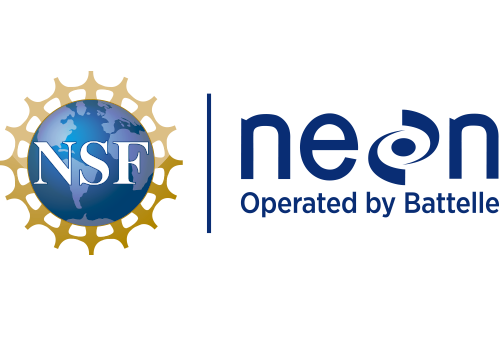


Integrating large ecological datasets into undergraduate research and teaching
with EREN, NEON and Project EDDIE
July 20-21, 2021
Applications now closed.
Follow this link for Breakout Room Prompts!
Follow this link to the Pre-Workshop Materials for Accepted Participants!
In this workshop, EREN partners with the National Ecological Observatory Network (NEON) and Project EDDIE (Environmental Data-Driven Inquiry & Exploration) to support undergraduate faculty in integrating large ecological datasets into their teaching and research programs.
The mission of the Ecological Research as Education Network (EREN) is to facilitate collaborative ecological research projects involving undergraduate students and faculty across a wide geographic network and to leverage these projects to enhance student learning while contributing to ecological science. NEON and Project EDDIE are natural partners with this effort: NEON is an excellent source of open-access large ecological datasets across the United States and Project EDDIE supports instructors in developing flexible, data-focused teaching activities.
This workshop is the first in a series of interactive virtual events that are designed to build a collaborative community of educators and researchers who are interested in exploring new approaches, tools and datasets for their classrooms and research labs. All faculty members, regardless of skill level or previous experience with large-scale data analysis, are welcome. Additional interactive virtual workshops will be hosted in 2021-2022 and there will also be an in person meeting in Summer 2022.
Participate in this initial interactive virtual meeting over two half-days that is designed to:
- Familiarize faculty with NEON data and ways to bring it into their undergraduate classroom and research programs
- Begin collaborative design of new, EREN-style research projects that incorporate NEON data and local field data collection by undergraduates
- Explore best practices in developing teaching activities with large datasets using the Project EDDIE training approach
- Identify undergraduate faculty and student needs for training in large-scale data analysis, data management, and statistics
- Join a network of peers interested in designing new research and teaching projects centered on large-scale datasets and collaborative science
Date/Times: July 20 and 21, 10am – 2pm Central Time Zone each day.
This is a virtual workshop, breaks will be incorporated!
Pre-workshop materials
We will provide pre-workshop tutorials on R, RStudio, QGIS, and accessing NEON data. All levels of experience are welcome and encouraged! The goal of the pre-workshop materials is to ensure that all participants are familiar with the tools commonly used to analyze NEON data so that everyone is equally able to participate in discussions about potential collaborative research projects with large datasets, as well as think about how you might be able to use these tools in your teaching.
We will host some optional pre-workshop virtual get togethers/office hours so participants can work through these tutorials together.
During the workshop
Day 1: Introductions & EREN-NEON Research Opportunities
- Learn about NEON data and EREN collaborative research
- Design a collaborative research project that integrates NEON data
Day 2: Using EREN/NEON Data To Develop Teaching Modules
- Walk through a Project EDDIE module
- Learn about the pedagogy of teaching with large datasets
- Design a data-based activity to use in your classroom
Participants are expected to abide by the workshop’s code-of-conduct.
Application: EREN-NEON-ProjectEDDIE Workshop Application
For questions about this workshop, please email Laurie Anderson, Matt Heard, Kristy Hopfensperger, Claire Lunch, Catherine O’Reilly, and Sara Scanga at erennsf2021@gmail.com.
This workshop is supported by funding from NSF IUSE-1821567 and NSF DEB-2005443. The National Ecological Observatory Network is a program sponsored by the National Science Foundation and operated under cooperative agreement by Battelle Memorial Institute. This material is based in part upon work supported by the National Science Foundation through the NEON Program.
